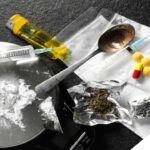Introduction
The Drugs and Cosmetics Act establishes two key bodies to regulate the safety and quality of drugs in India, the Drugs Technical Advisory Board (DTAB) and the Central Drugs Laboratory (CDL). These bodies help the Central and State Governments by offering expert advice and ensuring proper testing of drugs and cosmetics.
Drugs Technical Advisory Board (DTAB)
The Central Government must form the Drugs Technical Advisory Board as soon as possible. This Board advises both the Central and State Governments on technical issues related to the Act. It also performs other duties given by the Act.
The Board includes several key officials as ex officio members. These include the Director General of Health Services, who serves as the Chairman, the Drugs Controller of India, the Director of the Central Drugs Laboratory in Kolkata, the Director of the Central Research Institute in Kasauli, the Director of the Indian Veterinary Research Institute in Izatnagar, the President of the Medical Council of India, the President of the Pharmacy Council of India, and the Director of the Central Drug Research Institute in Lucknow.
In addition to these officials, the Central Government nominates two people from among those managing drug control in the states. One pharmacy teacher is elected by the Executive Committee of the Pharmacy Council of India, and one medicine or therapeutics teacher is elected by the Executive Committee of the Medical Council of India. The Central Government also nominates one person from the pharmaceutical industry. The Board includes one pharmacologist elected by the Indian Council of Medical Research, one person elected by the Central Council of the Indian Medical Association, and one person elected by the Council of the Indian Pharmaceutical Association. The Central Government nominates two Government Analysts under the Act as members too.
Nominated and elected members serve for three years. They can be re-nominated or re-elected. However, members elected or nominated based on their current job position will stay on the Board only as long as they hold that job. The Board, with prior approval from the Central Government, can set its own rules about meetings and decision-making. It may form sub-committees and include experts who are not Board members, either temporarily or for up to three years, to help with specific issues. The Board continues to function even if some positions are vacant. The Central Government appoints a Secretary and provides staff as needed for the Board to work properly.
Central Drugs Laboratory (CDL)
The Central Government must set up the Central Drugs Laboratory and appoint a Director to lead it. This Laboratory performs the functions assigned by the Act or the rules under it. If the Government decides, certain functions of the Central Drugs Laboratory related to specific drugs or cosmetics can be handled by the Central Research Institute in Kasauli or by another approved laboratory. In such cases, the Director of that laboratory will carry out the necessary responsibilities.
Rules by the Government
The Central Government can make rules after consulting the Board. These rules may define the functions of the Central Drugs Laboratory. They can also cover how to submit drug or cosmetic samples under Chapter IV or Chapter IVA, the format of laboratory reports, the fees for those reports, and any other matters needed to help the Laboratory perform its duties. The rules may also include details needed to allow other laboratories to handle certain testing tasks.
Conclusion
The Drugs Technical Advisory Board and the Central Drugs Laboratory form the backbone of India’s drug regulatory system. They offer expert guidance, ensure proper testing, and help enforce quality standards. Their structure and powers support safe drug use and protect public health across the country.











